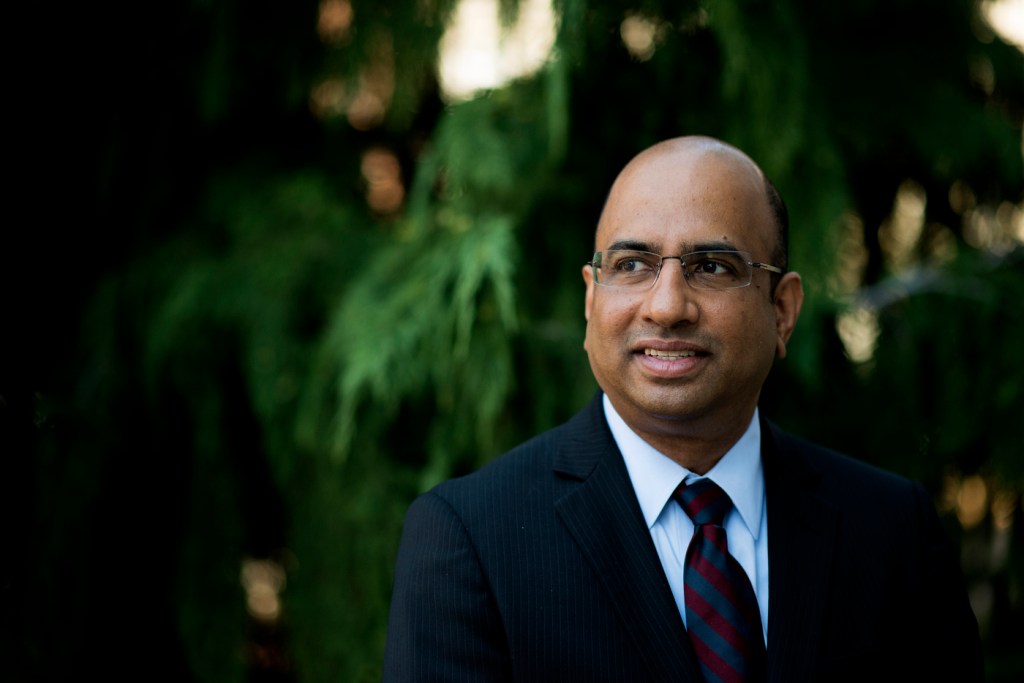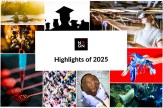Dean has vision of excellence for D’Amore-McKim School of Business

Raj Echambadi is now in his second month on the job as the inaugural Dunton Family Dean of the D’Amore-McKim School of Business at Northeastern, and his pride, passion, and energy is evident as he discusses the school during an interview in his Hayden Hall office. “I’ve been blown away by the quality of the students and their passion and engagement,” Echambadi said.
We asked Echambadi to share his first impressions of D’Amore-McKim, his vision for the business school, and his thoughts on the importance of entrepreneurial and interdisciplinary experiences.
Early on, what has stood out most about D’Amore-McKim and its students, faculty, and staff?
When I came to Northeastern, I was long aware of the university’s tradition of excellence, particularly with its co-op program, and its expanding global footprint. Northeastern has always been known as an innovator. What I’ve seen in the past few weeks has been beyond my wildest expectations. To me, it all starts with the people—including our extraordinary faculty and staff who ensure that student welfare and outcomes are our utmost priority. I’ve also been impressed with the quality of our students. We produce world-class students who are loyal, engaged, and passionate.
What advice would you give to incoming students?
One of the most profound statements I heard at the President’s Convocation was given by a student, who said that the difference between a tourist and a traveler is that a tourist expects the same comforts that they have at home while a traveler lets themselves be enriched by the place they’re visiting. That gets to the core of the advice I’d give our students: be curious, stay hungry for knowledge, and experiment.
Right now, fields are converging and new jobs and careers are emerging. The way forward is for students to ask themselves how they can add value to any corporation or community they’re a part of. Students must also understand is that innovation is not only about creating something totally novel and new, but it could also be about reconfiguration of existing elements in novel ways. At D’Amore-McKim, we are interested in creating such innovative thinkers who will impact the world in positive ways.
What is your vision for D’Amore-McKim? What are its short- and long-term goals?
Our long-term goal is to be an elite business school. I’ve been meeting with and listening to our students, faculty, and staff, as well as external stakeholders. We’ll identify short-term goals that will enable us to reach this long-term goal.
To become elite, we need to continue attracting both top-notch faculty and quality students. We need to dream big, start small, iterate, learn, and then scale. Our DNA is about signature co-op experiences; we need to stay true to our roots and build upon our experiential learning strengths. At D’Amore-McKim, we’re also discussing how to reimagine MBA education—one that is differentiated, focuses on our signature strengths, and provides a terrific value proposition. There’s also an opportunity to meld our strengths with other colleges’ strengths to create new, interesting courses.
How do you view entrepreneurship and its importance in business education today?
I think about entrepreneurship from a broad perspective. It’s not only about starting new ventures; it’s an attitude and a mindset. Entrepreneurship, to me, means thinking differently and doing more with less. It’s about being creative and accomplishing your goals. Every student should be exposed to entrepreneurship and be entrepreneurial in his or her own ways. You can bring an entrepreneurial mindset to any job, whether you’re working at Google or as a city mayor.
You hold degrees in mechanical engineering and business administration. What can students gain most from interdisciplinary work and collaboration?
When students are exposed to cross-disciplinary education, it expands their horizons and they develop intersectional thinking. Instead of looking at a problem from a business perspective, they look at it from a holistic perspective. I believe the grand challenges of our time—be it healthcare, security, or sustainability issues—cannot be solved as a business problem alone. Cross-disciplinary education is highly important for developing successful leaders.
What do you like to do outside of work?
I love traveling, reading, and spending time with my family—my wife, Malathi, and our two young daughters, Mira and Maya. Not only is traveling enriching, but it has taught me empathy and cultural sensitivity, two traits that are highly useful in leadership situations.
I am also probably the world’s biggest fan of Walker, Texas Ranger. I did my graduate work in Houston, and I became an unabashed admirer of the show. The reason, to be honest, is that apart from the nostalgic connection to Texas, good always triumphs at the end. It is a hopeful message that we have the ability to shape our world for the better if we work for it.





